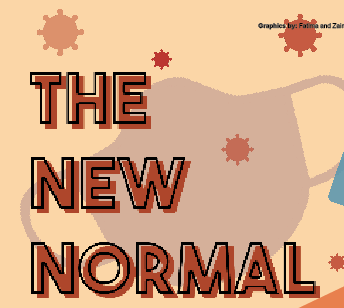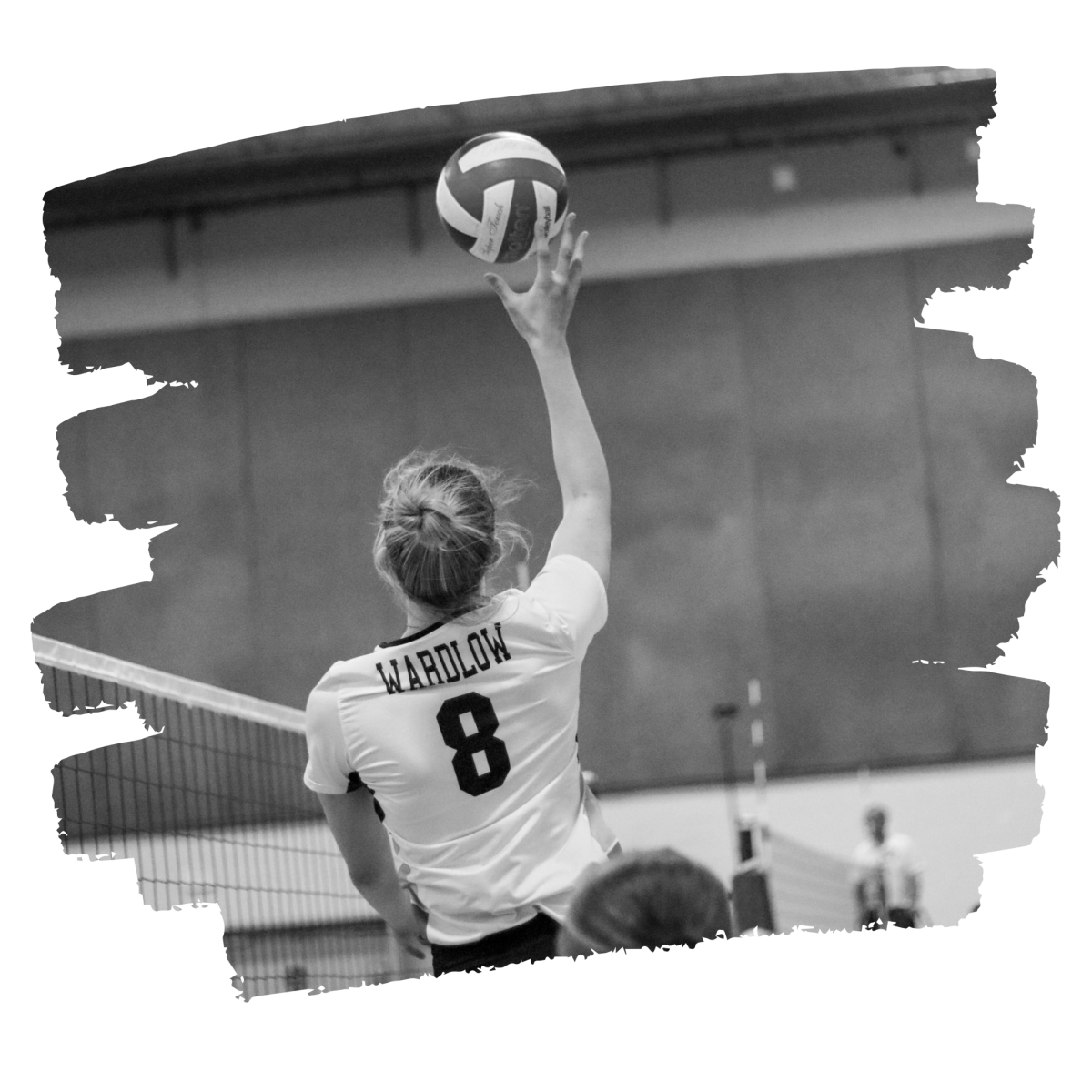The new normal
Society has adapted to life with the pandemic… a bit too well

Graphics by: Fatima and Zainib Al-Jayashi
March 22, 2021
When the news that COVID-19 had reached America first broke out, a wave of anxiety and dread swept the nation. Schools were quick to shut down, and strict pandemic procedures were put in place. People were hesitant to go outside and reluctant to stand too close to others, fearful that they or their loved ones would come into contact with the disease.
However, this outburst of emotions was swiftly followed by, unfortunately, an outburst in cases. The reaction? Surprisingly, it was quite the opposite of how society initially responded. The more our neighbors and classmates started testing positive for the virus, the less concerned we had become. With every email that notifies us that a new person has been infected, we brush it off and carry on with our day. This is the new normal, and it’s certainly an indication that we’ve adjusted to life with the pandemic, albeit a bit too well.
There really is no concrete date of when the leniency regarding the virus began. It started with more people making plans to meet up, and then, the masks came off more often. School proceeded as normal and sports started back up. Parties became more frequent and much larger, and the perceived significance of the pandemic gradually decreased. However, there are several reasons that can explain this change in behavior, the first being the vaccine. Regardless of the uncertainty revolving around its effectiveness or the number of people that are willing to get vaccinated, the hope that the vaccine creates is a driving factor in the leniency towards the pandemic.
The second reason for the lack of caution regarding the pandemic comes from the mental toll of long periods in quarantine and online school. To many, the days have become much more routine and certain procedures have become too tiring to follow. Additionally, those that are not directly affected by the virus do not hold the pandemic to the same regard as others.
Desirae Gambrell (10) believes that this behavior and lack of caution poses a great risk to society.
“Some people aren’t taking the pandemic seriously because they are overwhelmed with selfishness and they just want their temporary fun,” Gambrell said. “These people are less lenient because their desires rose above the restrictions. Some teenagers still have parties and had fake HOCOs [Homecomings] during this pandemic and it’s disappointing. They have the ‘nothing happened to me yet so nothing ever will’ mentality.”
Thus, the pandemic has certainly been able to integrate itself into our lives, and many grab their mask and go about their day without giving the virus much thought. This constitutes the new normal, and there are many other aspects of the pandemic that we’ve become adapted to. For Ava Brackett (10), the pandemic has brought a new meaning to the word “hygiene” as well.
“Some people mainly focused on hygiene as an aspect of being clean a looking presentable and decent,” Brackett said. “Now, I feel like people are focusing on hygiene in the sense of being sanitized. People don’t really clean the objects in their home other than light dusting of their shelves. Now, people are trying to disinfect all their surfaces with bleach… I’ve also emphasized habits I used to have. Other than wearing a mask, I wash my hands more frequently and disinfect and clean things more often.”
However, will this new normal stay once the pandemic is over? With the shock of an unprecedented outbreak like COVID-19, some may say that keeping these hygiene practices can be beneficial and can prevent another pandemic like this one. At least with the current uncertainty surrounding the vaccine, students like Brackett feel like wearing a mask once it is no longer required may be the best option to ensure that their safety is guaranteed.
“What most people will consider the pandemic being over won’t really mean that the pandemic is genuinely over. Once the majority of the population gets vaccinated when the time comes around, there will be people who refuse to get vaccinated because, unfortunately, it’s not required. I think it’ll be awhile until it’s perfectly safe to completely return to life as it was before the pandemic. So at least for a few more months after the pandemic is “over,” I wouldn’t mind wearing a mask and following procedures.”
Cillian Smith (10) also believes that it is important to recognize the effects of the pandemic and to continue to be cautious, whether at school, in public, or even at home. To Smith, wearing a mask even after the majority of people have been vaccinated will most effectively flatten the curve and return life to how it was before the pandemic.
“Lincoln is beginning to see a decrease in cases, but I don’t see any signs or progress in COVID-19 cases going down in school,” Smith said. “People can lie about not having the virus, even your closest relatives. I have recently started wearing my mask inside my own home, regardless whatever I am told. I think for about a few weeks after the pandemic [is over], I will continue to wear a mask, even if school will not allow them. Thus, I can and will speak for the here and now: never let your guard down.”
With this in mind, there is still much uncertainty revolving around the future, and many students are unsure of how school policies will change regarding COVID-19. Will learning through zoom still be an option for the next school year? Will masks continue to be enforced? Regardless of the questions that have arisen, one thing is certain. Our definition of normal has changed. We’ve witnessed both the advantages and disadvantages of society’s rapid versatility in responding to the pandemic. In the end, this new normal may be the door to new beginnings. We just have to continue what we’ve been doing: adapt.








